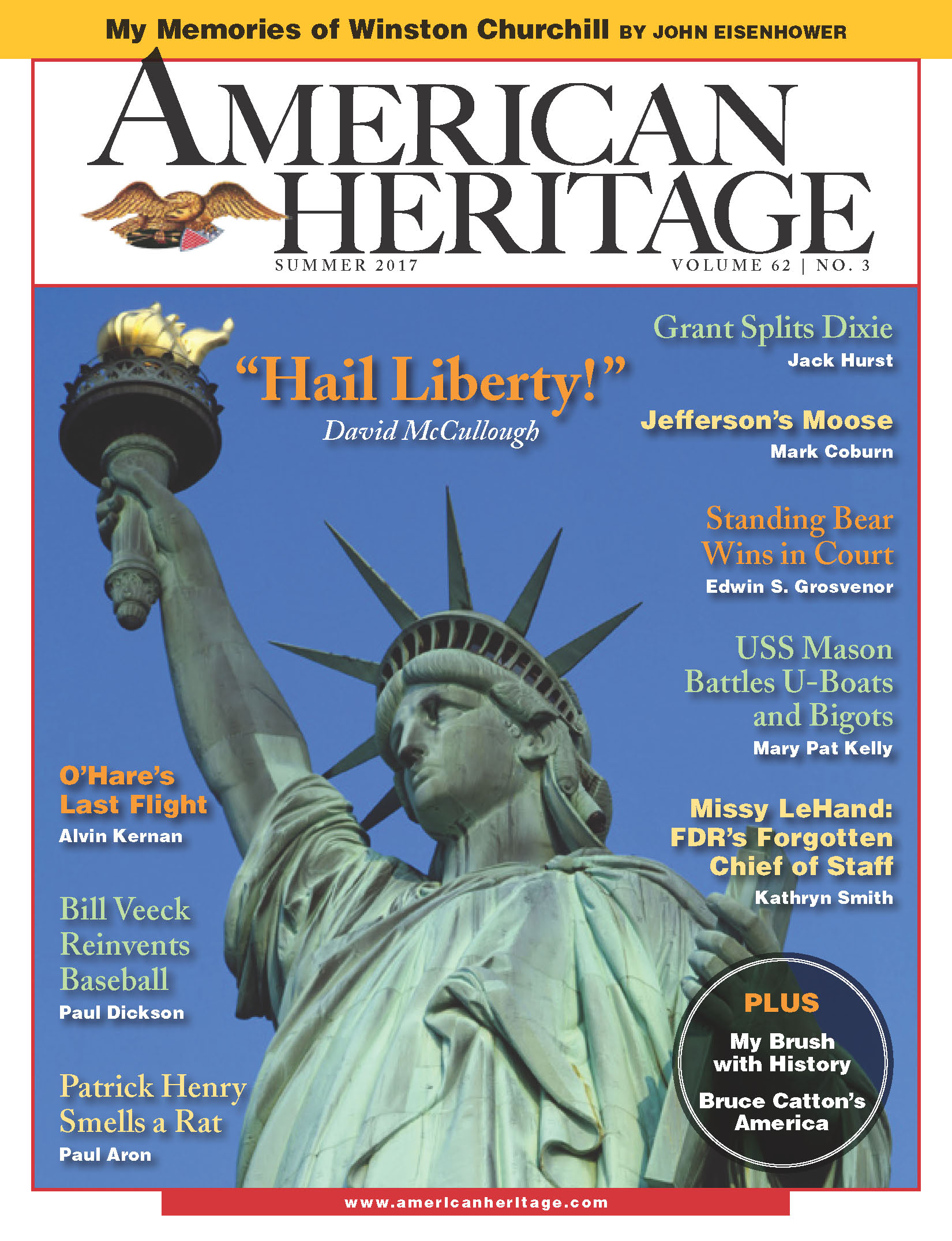A chance meeting in a raucous hotel lobby nearly one hundred years ago led two drummers to make a spiritual mark on hostelries worldwide
-
April 1991
Volume42Issue2
Whatever other surprises might erupt on a trip across the country, one thing you can pretty much count on is the presence of a King James Bible in your hotel or motel room, put there by an organization called the Gideon Association. That’s as much as most of us know. That Gideon Bibles have made their way to 140 countries in nearly sixty languages, have been placed in prisons and colleges, that they reached servicemen in Pearl Harbor in December 1941, that the five hundred millionth copy was handed to President Bush in 1990 would probably not astound the two founders, traveling salesmen who met by chance at the Central Hotel in Boscobel, Wisconsin, on September 14, 1898.
John H. Nicholson was a traveler in aluminum and an evangelical Christian, and that afternoon he had already converted a young carriage driver named Emery who had taken him to several appointments. At day’s end Nicholson arrived in Boscobel, looking for a room at the Central Hotel. In a later newspaper article in which he refers to himself in the third person, Nicholson wrote that “he found it crowded with drummers and ‘hangabouts,’ playing cards, shaking dice, smoking, laughing, cursing, yelling and singing with clinking of glasses and the tinkle of the mechanical organ … men were drunk and asleep in chairs, others dancing …”
Nicholson had happened upon a lumbermen’s convention, and the hotel was almost full. The landlord came to his rescue, pointing out the one respectable-looking stranger in the lobby, who was somehow managing to catch up on his correspondence in the riotous atmosphere. As Mr. Samuel Hill was sole occupant of a double room, would they agree to share? “They clasped hands, looked into each other’s eyes, recognizing an open-hearted manliness,” Nicholson recalled, and the deal was done.
Just before lights-out in room number 19, Nicholson said, “You will excuse me, Mr. Hill, but before retiring I always read out of God’s Word and have a little talk with him. … Mr. Hill arose on his elbow [and] said, ‘Will you please read aloud? I, too, am a Christian man.’ ”
From this felicitous start the salesmen met again as they crisscrossed their Wisconsin territories. Less than a year later they founded an association of like-minded gentlemen that they named for Gideon, the Old Testament leader of a small band devoted to carrying out God’s work. In their case the work turned out to be the distribution of Bibles to hotels, but it was a while before that came clear. Their first order, for twenty-five copies, arrived at the Superior Hotel in Iron Mountain, Montana, in November 1908; in December another 151 copies went to Detroit’s Griswold Hotel. The idea took hold. Before long the spiritual partners had delivered nine thousand Bibles to Chicago alone.
The Central Hotel, which later took the name Boscobel, always remained first in the hearts of the Gideon founders and their growing membership. The three-story 1865 limestone building soon became a major tourist attraction and a financial anchor to the small southwestern Wisconsin town in which it stands. During a 1924 reunion there, as the photo at right shows, the two salesmen reenacted their first encounter in room 19. In 1987, as hard times spread across heartland America, the hotel was repossessed and closed. Even after the doors were locked, community pride in the place ran high, and the town’s citizens, including many youngsters, turned out in the summer of 1989 to give it a brisk cleaning just before a contingent of twenty Japanese Gideons came to visit. They had a special interest, as the Boscobel Hotel is pictured on the front cover of all of Japan’s Gideon Bibles. The news of the hotel is a little better now; a new owner gained it at auction last September for a high bid of fifty-six thousand dollars. He has put on a new roof on and is trying to attract local people as co-investors.
“Why didn’t the Gideons themselves buy their shrine?” a Milwaukee reporter asked the executive director. “Certainly there is nostalgia in our bones,” Wendell C. McClinton replied. But his group’s sole aim, he affirmed, is “placing the word of God in 140 countries in 58 languages … and we’re not interested in raising funds for anything else.” To John H. Nicholson this would make perfect sense. “It is wonderful how God leads one whom He has chosen to do a certain piece of work for Him—as He did Gideon of old,” he wrote. And so, at the end of a day of work in a strange city, after long hours on the road, the Bible awaits the traveler.


